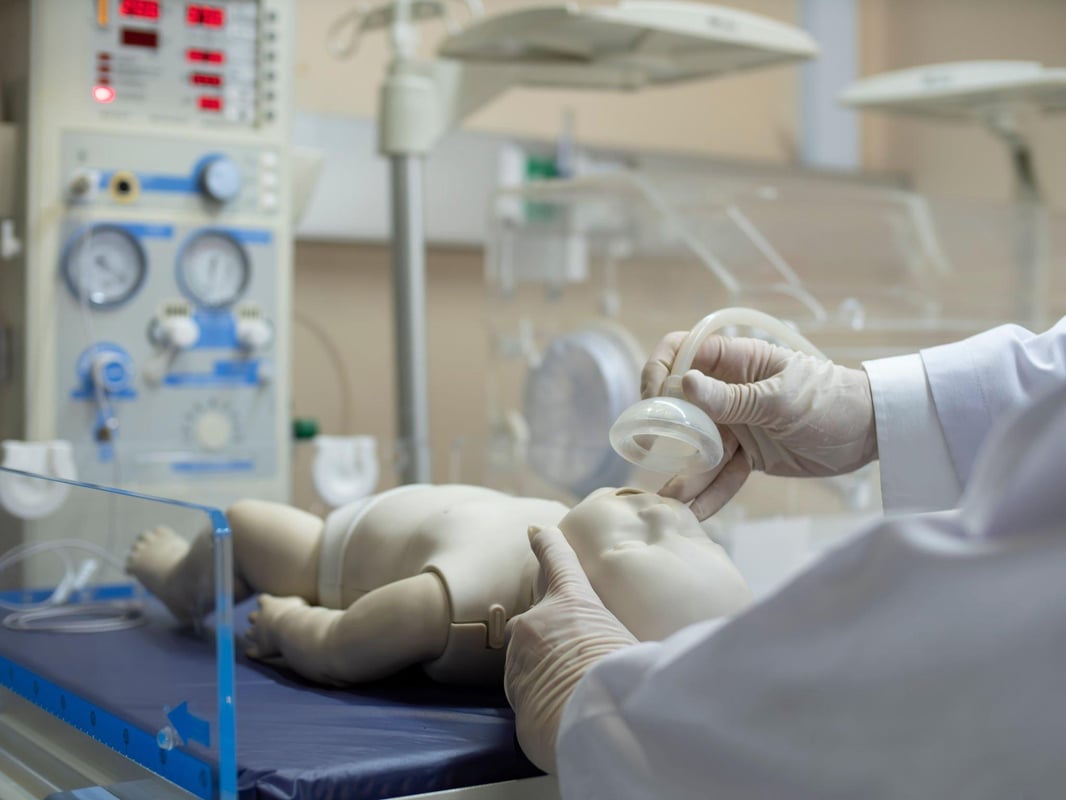
$191 to start
$2,200 total

Financial aid (may be available)

$239 to start
$4,000 total

$242 to start
$4,000 total
$276 total
$2,075 total
$270 total
$410 total
$365 total
$150 total
No cost info
$285 total
$150 total
No cost info
Whether you are an aspiring healthcare professional or you are already working in the field, Pediatric Advanced Life Support (PALS) certification can be a valuable addition to your resume. This blog post will help you understand what PALS is, what the training requirements are, what to look for in a PALS class, and what the certification process looks like. We will also discuss how to find related jobs and other classes you could take after becoming PALS-certified.

Pediatric Advanced Life Support, often abbreviated as PALS, is a certification that equips healthcare providers with the knowledge and skills necessary to respond to critically ill infants and children. PALS training covers various aspects such as recognizing and managing cardiac arrest, respiratory emergencies, shock states, and common pediatric arrhythmias. It also emphasizes the importance of a systematic approach to pediatric assessment and effective team dynamics during resuscitation.
To enroll in a PALS class, participants typically need to have a basic understanding of pediatric cardiopulmonary physiology, EKG rhythm interpretation, airway management, and drug administration. Here are some of the prerequisites:
Basic Life Support (BLS) certification
Understanding of the PALS algorithms for resuscitation
Knowledge of pharmacologic principles according to PALS guidelines
When choosing a PALS class, there are several factors to consider:
Accreditation: Make sure the class is accredited by a recognized body, such as the American Heart Association (AHA).
Course Content: The course content should align with the latest AHA guidelines.
Instructors: Look for experienced instructors who provide comprehensive training and hands-on practice.
PALS classes are typically intensive and designed to simulate real-life medical emergencies. Here's what you can expect:
Lectures: These provide theoretical knowledge about pediatric emergencies.
Simulations: These practical sessions allow you to apply the theoretical knowledge gained in lectures.
Tests: These are used to assess your understanding of the course content.
The PALS certification process involves passing both a written exam and a hands-on skills test. After successful completion, you'll receive a PALS provider card, which is typically valid for two years.
Once you're PALS-certified, there are various job opportunities available in the healthcare field. These include roles in emergency departments, pediatric departments, and intensive care units. You can find related jobs through local job boards, networking, or platforms like Dreambound, which specialize in helping students find vocational training programs.
After completing PALS, you might consider further enhancing your skills with these additional certifications:
Advanced Cardiac Life Support (ACLS)
Neonatal Resuscitation Program (NRP)
Emergency Medical Technician (EMT)
Continuous education is essential for healthcare professionals. It allows you to stay updated with the latest industry developments and enhances your skill set, making you a more competent professional. You might consider taking classes in related fields such as medical sonography respiratory therapy.
To make the most of your PALS class, it's important to actively participate in all lectures and simulations. Don't hesitate to ask questions or seek clarifications. Remember, the goal is not just to pass the exam, but to acquire skills that will help you save lives.
Becoming PALS certified comes with numerous benefits. Not only does it enhance your resume, but it also increases your confidence in handling pediatric emergencies. It opens up new job opportunities and can be beneficial if you decide to specialize in areas like pediatric nursing.
A PALS certification is a valuable asset for any healthcare professional dealing with infants and children. It equips you with the necessary skills to handle pediatric emergencies effectively. Remember, when looking for ""PALS classes near me in Charleston"", consider the course content, the instructors, and the accreditation of the course. And don't forget, continuous learning is key in the ever-evolving field of healthcare.
Check out Dreambound's extensive guides focusing on the unique challenges and requirements for each city in the US. For more detailed information, see some of our other guides below.
Dreambound's platform allows prospective students to find the right educational program for them through searching, filtering, and connecting with our extensive selection of career & technical education partners.
Dreambound has over 70 programs across healthcare, technology, business, and industrial trades. This includes programs such as Medical Billing, Cybersecurity, and welding.
Some of our schools offer financial aid for those who qualify. Many others offer payment plans, where you can pay the cost of class over time.
Yes, Dreambound offers many online programs. On Dreambound's search, you can filter by online, in-person, and hybrid (part online, part in-person).
Dreambound is completely free for you to use! We are supported by schools and organizations who pay to advertise on our website, so we can offer all of our career resources for free.